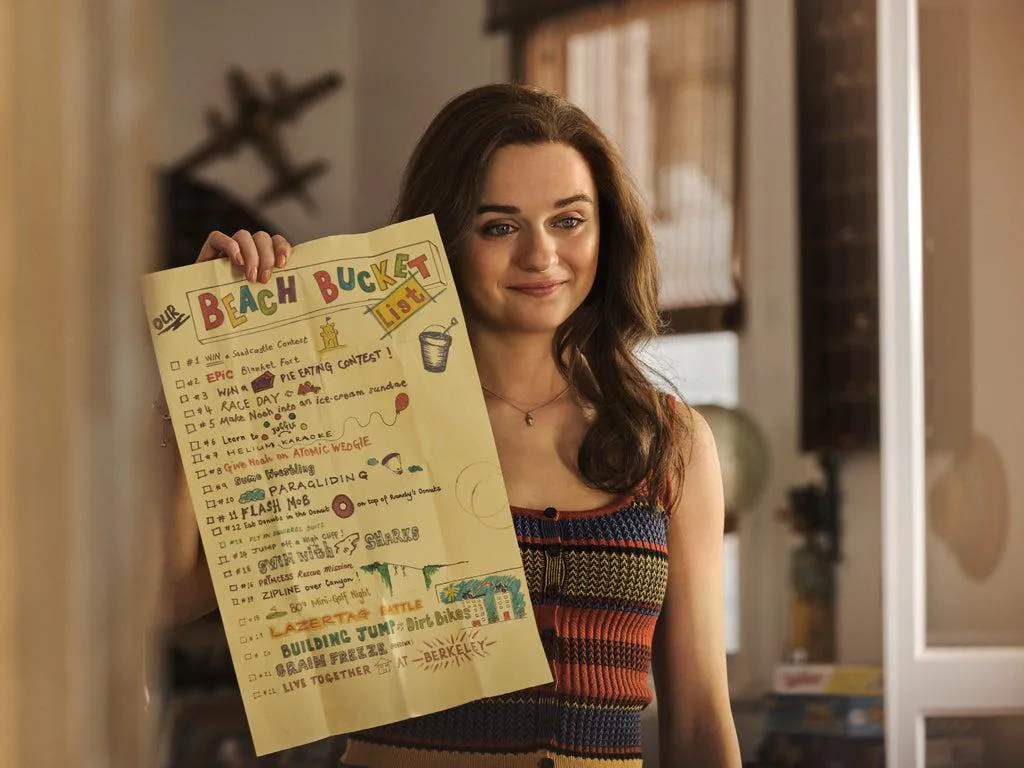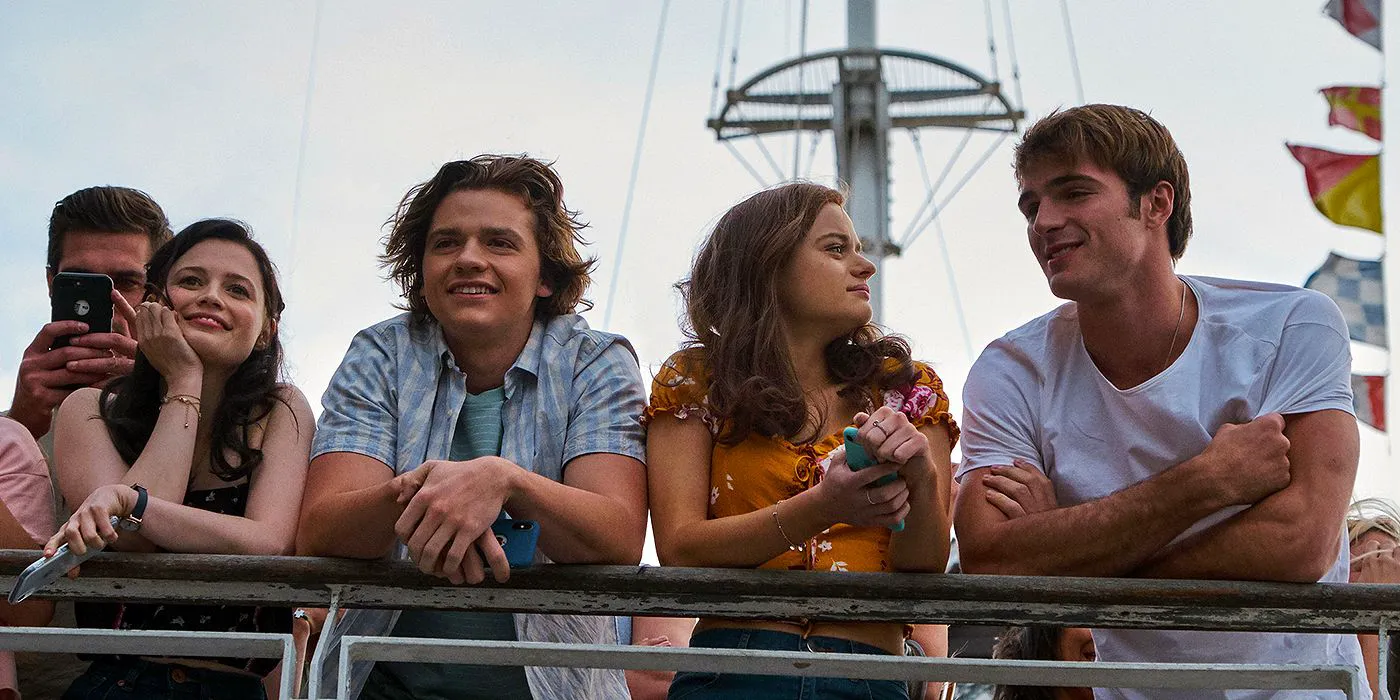High school is finally over, and college is just around the corner. With three summer months left before officially entering adulthood, Elle, Lee, and Noah decide to move into a small beach house to bid farewell to their childhood and have a blast. However, the main character isn’t in the mood for fun – she’s still torn between attending Harvard or Berkeley. If she chooses the former, Elle will have to distance herself from her best friend, while the latter means breaking up with her beloved boyfriend.
For those who missed the first two installments, “The Kissing Booth” is one of Netflix’s flagship projects with a massive audience. Despite numerous plot clichés and questionable moral compasses, the film quickly gained popularity, largely due to the charming young actors who managed to breathe life into their flat characters.
The Kissing Booth 3: A Disappointing Finale?

Joey King as Elle Evans in a still from “The Kissing Booth 3”
With the release of the final installment of the franchise, the creators of “The Kissing Booth” attempted to distance themselves as much as possible from the original story, which, by the way, was initially conceived as fan fiction on the popular reading platform Wattpad. It would seem that this development should have benefited the threequel, but alas, it didn’t. In their desire to keep up with the times, director Vince Marcello and screenwriter Jay S. Arnold seem to have forgotten to change their perspective. The third part of “The Kissing Booth” was supposed to be a light summer comedy and a touching farewell to the fans who have followed the development of the main characters’ relationship all these years. But instead, for some reason, the film decided to veer into the territory of feminism, ignoring the audience’s expectations.
A Confused Narrative
The first half of the film feels like a typical guilty pleasure – the main storyline, related to Elle and her difficult choice, is frankly stalling, giving the lion’s share of the runtime to meaningless gags, personal experiences of minor characters, and close-ups in bikinis. As the story progresses, Elle finds herself torn between the main men in her life – her beloved boyfriend, best friend, younger brother, father, and even the failed boyfriend from the second part – and ultimately predictably forgets about herself. Even the dilemma with colleges is largely tied to the desires of Lee and Noah, but not to her personal preferences. It seems that the roles of someone’s “friend” and “lover” seem much more interesting to the girl than her own future.

Jacob Elordi as Noah Flynn in a still from “The Kissing Booth 3”
Oddly enough, the only voice of reason in this carnival of androcentrism is the character of Jacob Elordi, who directly advises the main character to get off his orbit and finally start living her own life – a generally sound idea, but presented in a completely wrong way. Instead of coming to important conclusions on her own, Elle once again follows the lead of an authoritative man and, as if out of desperation (after all, her boyfriend dumped her!), remembers her career ambitions – the story of a strong and independent woman that we deserved.
Missed Opportunities
In this vein, I want to recall another Netflix trilogy, “To All the Boys I’ve Loved Before,” which essentially raised the same themes: going to college, saying goodbye to childhood, long-distance love. However, the creators of the film acted more wisely, preserving the romanticized concept and giving their characters a real happy ending. After all, why else do we watch such films?